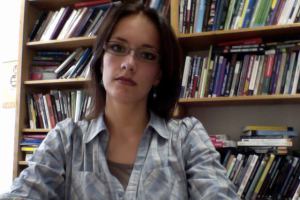On the Personal and the Political. Or, How to Retain a Sense of ‘Humanity’ in Egypt? Part 1
| Date: | 08 December 2012 |
| Author: | Religion Factor |

Dr Vivienne Matthies-Boon is currently in Cairo. In today’s post, she shares with us some of her experiences and reflections on the ongoing conflict between pro-democracy campaigners and supporters of the Muslim Brotherhood.
This is a difficult time to be in Egypt. It is also difficult to write anything about the current situation on paper. For, what is true one minute is often unsettled and outdated the next. The situation here is above all confusing – choatic, violent and confusing. It is disorienting in all respects. It is disorienting in that noone, not even the most skeptical observers, could have predicted the extent of the power grab undertaken by president Morsi when he issued the constitutional declaration. Nor could they have predicted the mass protest movement that erupted in order to object to this declaration (which gave the president unprecedented powers over the legislative, executive and judiciary[i]) as well as the draft constitution (written by an Islamist dominated constituent assembly whose constitutionality was supposed to be decided on 2 December, but the judges could not even enter the court building as they were blocked by Islamist fundamentalists who shouted they were to protect Sharia law and accused the judges of being involved in a Zionist plot).
On Tuesday of this week, the atmosphere in Cairo amongst the opposition was optimistic – hundreds of thousands of protestors had marched upon the palace to object and voice their concern. It was a boost for the opposition, suddenly, the opposition movement, which had always been portrayed (both inside and outside of Egypt) as relatively small was huge – and moreover, it was marching directly on Morsi’s presidential palace where they set up camp. There was a sense of amazement and optimism in the air, confirmed by the sheer numbers. This optimism would however disappear rapidly on Wednesday when, towards the end of the afternoon, reports were coming in that the Ikhwan (the Muslim Brotherhood) were driving in buses full of their supporters to the presidential palace shortly after the vice president Mekki gave his speech stating that it is normal in republics for a president to obtain full control over the legislative, judiciary and executive. The anger and frustration but also sadness in the air was palapable. The very fact the Ikhwan drove these buses to the place of oppositional protest was an indication that things were going to be different – very violent – this time around. For earlier on in the week, the same buses had been driven to Cairo University where Ikhwan supporters protested some distance away from medan tahrir where the opposition was raising its voice. And a conflict it became: one of the worst battle fields within Egypt erupted on Wednesday night – as Ikhwan members attacked the up till then peaceful demonstrations. They carried guns of all kinds, metal chains, electric shockers, knives, blades and teargas (the question still is where they get the teargas canisters from). They also ripped the protestors camps, shouted at the protestors in Fusha (formal arabic rather than Amiyya – the dialect that most people speak) saying they were infidels, and set up torture chambers in random buildings around the city – where the Central Security Forces cooperated with the Ikhwan as they conducted “investigations” by severely torturing people[ii], obtaining confessions that they are “thugs” and then broadcasting these statements on their own television channel. The cooperation with the state’s security forces during Tuesday’s battles was clear for all to see – as the security forces not only cooperated in the torture chambers but also cleared the way for the Ikhwan to regain force and attack protesters again and again. In the meantime, protesters hurled back stones and shot back using their own home made pellet guns. The result: 5 people confirmed dead and approximately 700 injured.
Dr Vivienne Matthies-Boon is Assistant Professor in International Relations, Department of International Relations and International Organisation, Faculty of Arts, University of Groningen, and a Fellow of the Centre for Religion, Conflict and the Public Domain, Faculty of Theology and Religious Studies, University of Groningen.
[i] For a fuller analysis of this constitutional declaration, see: http://www.opendemocracy.net/andrea-teti-vivienne-matthies-boon-gennaro-gervasio/revolution-continues-morsi’s-miscalculations-and

